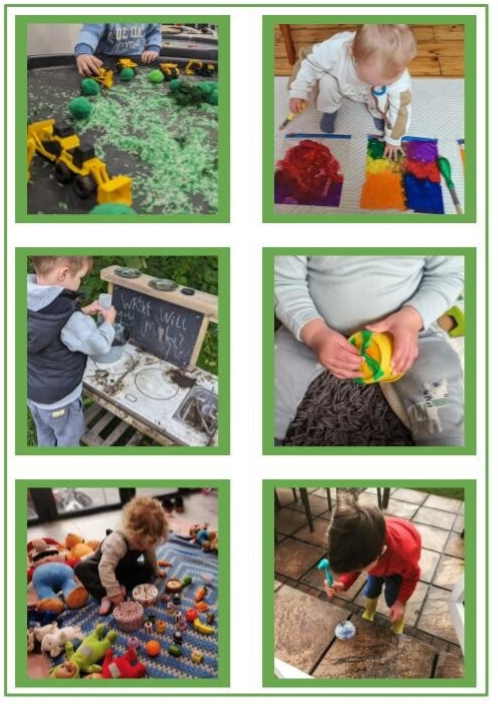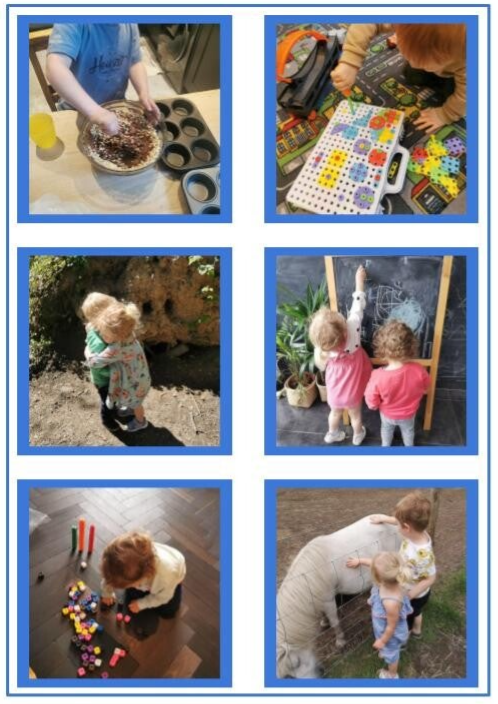What we do
Learning through play approach
At the heart of our childcare philosophy is the belief that children learn best through play. Our nannies adopt a learning through play approach to create an enriching, engaging, and nurturing environment where children naturally develop important cognitive, social, and physical skills. This method combines fun with education, allowing children to explore, experiment, and grow at their own pace while fostering a love for learning.
By integrating learning into everyday play, our nannies ensure that children are not only having fun but also developing the skills they need to succeed in life. This approach fosters a lifelong love of learning, helping children thrive both intellectually and emotionally.


Educational Activities
Our nannies are trained to engage children in a variety of educational activities that promote cognitive, social, emotional, and physical development. These activities are tailored to the child’s age, interests, and developmental stage, ensuring a balanced approach to learning through play and structured activities.
Each educational activity is designed to be engaging and fun, helping children learn naturally while fostering their overall growth.
Essential Life Skills
In our childcare services, our nannies take a thoughtful and interactive approach to teaching children essential life skills. By combining fun, patience, and practical guidance, they ensure that children not only learn but also enjoy the process.
Through patient instruction, creative activities, and consistent encouragement, our nannies help children develop these essential life skills in a way that is both nurturing and fun.


Age-Specific Focus
Our nannies take a tailored approach to childcare, providing age-specific learning through play to ensure that each child is supported in their developmental journey. By using play as a foundation for learning, our nannies help children build essential skills while having fun, ensuring that activities are engaging, stimulating, and suitable for their age group.
By focusing on age-appropriate play, our nannies ensure that every child is learning in a way that’s natural and enjoyable for them. Each stage of development is supported with activities that help children grow and thrive while making learning a joyful experience.
Related Posts:
Benefits of learning through play
The vital role of outdoor exploration
Benefits of sensory play

